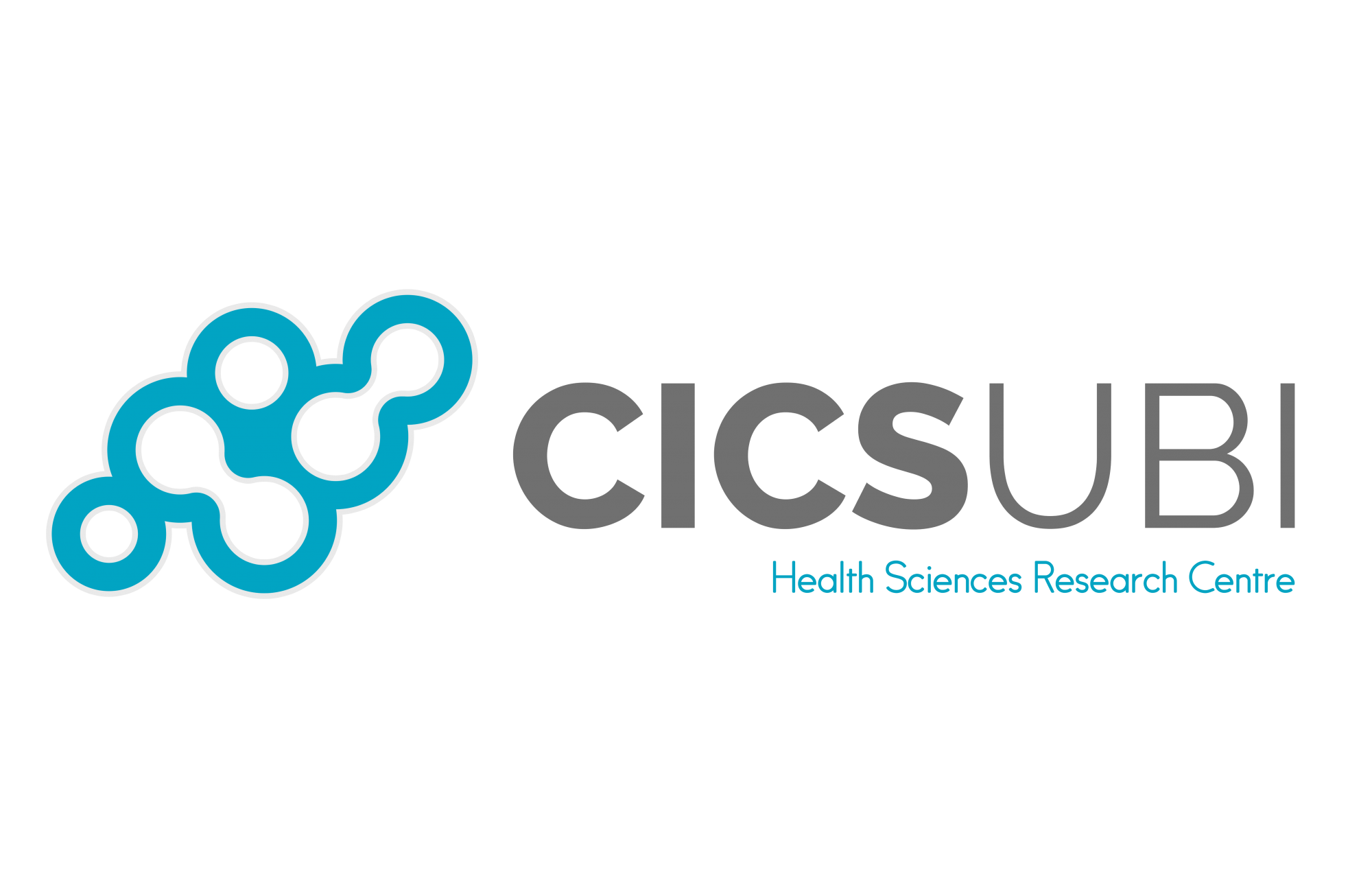

|
|
| Address | Av. Infante D. Henrique 6201-506 Covilhã, Portugal |
|---|---|
| Platforms | ATMP & Biological, Biomarkers, Small Molecules |

CICS-UBI is a Health Sciences Research unit located in the Medical School Campus of the University of Beira Interior. Founded in 2001, it is now a consolidated FCT-funded research unit with national and international recognition. The state-of-the-art facilities and cutting-edge laboratory resources host and nurture the work of nearly 200 researchers.
CICS-UBI is an essential partner of the Clinical Academic Centre of Beiras, a large consortium which brings together higher education institutions, and healthcare units with the purpose of creating excellent integrative projects, with a strong impact on disease prevention, as well as on the provision of excellent healthcare. This important partnership promotes translational and clinical research by bringing together clinicians and other healthcare professionals, and biomedical, biotechnological, and pharmaceutical researchers.
CICS-UBI research fosters basic, translational and clinical research, with a strong interdisciplinary nature at the crossroads of Biomedicine and Health Biotechnology. CICS-UBI researchers are making important contributions to understanding dementia, Parkinson´s, Alzheimer´s, stroke, cancer, and endocrine, respiratory and infectious diseases, and to develop innovative and more effective diagnostic tools and therapies to meet current health challenges.
Alongside, we promote the transfer of knowledge and technology to pharmaceutical and biotechnological industries, creating added value to science and technology, and encouraging the incubation of spinoff companies.
Another priority is offering advanced training opportunities and scientific careers, in a highly stimulating and interdisciplinary research environment, with 4 ongoing PhD programs in Biomedicine, Medicine, Biochemistry and Pharmaceutical Sciences.
Our social and economic responsibility is also very high.
CICS-UBI contributes to attracting and retaining highly qualified human resources in the region, including health professionals. We have ongoing research dedicated to valuing the endogenous resources of the region by exploring their medical applications. The engagement with the local population is also a fundamental commitment to increasing health literacy and motivating young people to science through regular activities directed to the community.
Small Molecules platform
The small molecules platform develops drug candidates for an identified target or for novel biological targets to disrupt disease pathways. Special attention is devoted to nanotechnology and its application in the pharmaceutical and biomedical fields.
This includes engineering nanomedicines by proposing new functional ligands, producing tailored multifunctional nanoparticles, and novel nanoformulations for the delivery of small molecules for managing cancer and infection.
The characterization of molecular interactions between the drug candidates and the targets is based on the integration of pharmaceutical chemistry synthesis, computational biology, biochemical and biophysical technologies. The demonstration of the mechanisms and effects of small molecules and their pre-clinical in vivo assessment makes use of 3D in vitro cell-based models, cell-based high-throughput screening, advanced imaging techniques, pharmacokinetics and metabolism analysis.
Biomarkers platform
The biomarker platform brings together expertise and facilities in genomics, metabolomics, advanced microscopy, flow cytometry, multiplexed immunoassays, pharmacokinetics and pharmacodynamics, among others. These integrated approaches support the identification and validation of reliable biomarkers used to monitor disease progression, assess drug response, and support therapeutic development. The platform provides access to human samples (DNA, plasma, saliva, and tissue biopsies), as well as clinical data, mainly related to neurologic and vascular diseases, cancer, and endocrine disorders. Samples from pre-clinical models of disease are also available.
















